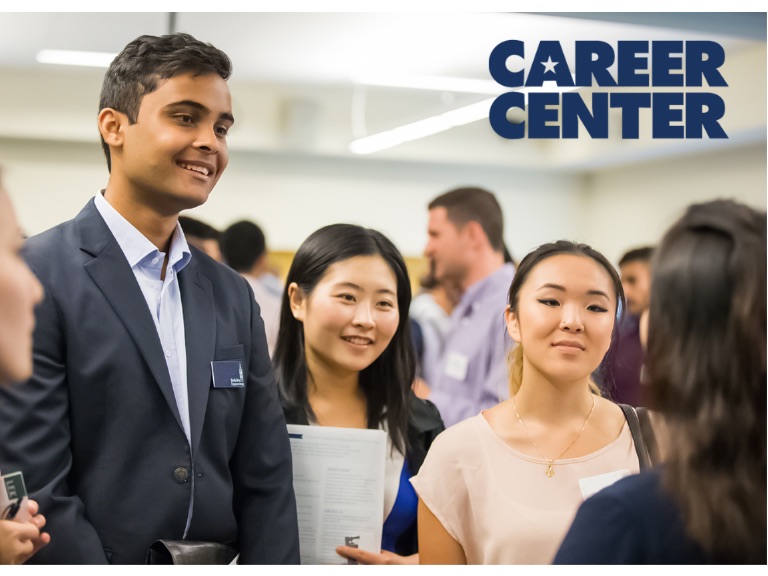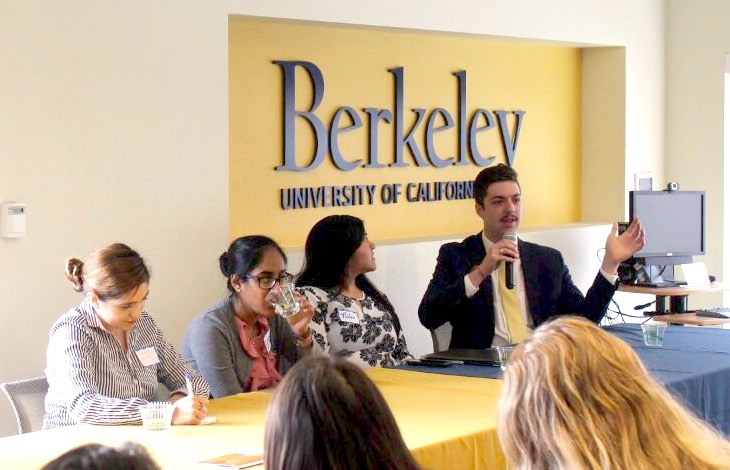
Internship Tips and Resources
While internships are typically associated with the fall months, not all internships happen during that time. If you missed internship season in the fall, there are more opportunities available! We asked two UC Berkeley Career Engagement employees—Shana Love, Assistant Director for Experiential Learning, and Adrianne Johnson, Assistant Director for Alumni and Employer Engagement—to share some insight into the internship process. They provided some tips for getting started, no matter when you decide to pursue an internship.
Is all internship recruitment in the fall?
- Unique timelines. Employers have their own timelines, based on their financial cycles, hiring needs, turnover of employees, and more. Middle and smaller employers (especially fast-moving startups) don’t really stick to the typical timeline.
- Predictable timelines. Large employers (especially in traditional fields like consulting, accounting, banking, investment banking) follow a predictable cycle of recruiting heavily in the fall and little to none in the spring. Mid-small employers don’t always have a super strict recruiting timeline. These companies can be more sporadic and hire “just-in-time.”
- New opportunities. A lot of people also drop out of the process late in the game and new opportunities become available all the time. Keep an eye out on Handshake for new postings and set reminders!
“No matter what your major is, you can get some marketable skills through internships—also through part time jobs, customer service, retail; all great skills that you can use to market yourself.”
– Adrianne
What can students do over the summer to prepare for internships?
- Meet with a career counselor and update your resume with any skills or experiences you’ve had this year that you think employers may be interested in hearing about. Even part-time work is important because it shows you can show up on time and be a helpful and conscientious colleague and employee.
- Think about what transferable skills you have from your other activities. If you lead a club—you have leadership skills! If you help your parents with their business or work at a restaurant job, you have customer service skills! All these skills are valuable to employers and recruiters want to know you have them.
- Shana: “Volunteer work gets you hands-on experience, experiential learning. That same thing happens throughout life: while you’re in college, beyond college, finding ways to get experiential learning, that hands-on training—it’s helpful in every stage in life.”
- Practice your pitch. Write down everything you think you can bring to the table so you can be ready if you get an interview.
- Research, research, research! Narrow down your top 10 companies or organizations and read their job descriptions, website, blog posts, social media, so you have a better understanding of the company, the job itself, and the employees who work there. Use some of the keywords they use in your resume and cover letter so they know you are excited to work with them. If you’re looking for help getting started, check out the Career Engagement’s resume and cover letter writing resources.
- Come to Career Fairs and meet with the company representatives! You can ask for feedback on how to make your resume top notch and what you can do to improve your chances of getting into their company.
- Connect with Alumni at Career Connections or on the Berkeley Career Network for extra insight into your desired career.
- Adrianne: “The Berkeley Career Network is run through the Cal Alumni Association in collaboration with the Career Engagement. It’s a good site to reach out to alumni and ask for a Zoom call to ask how they like the company they work at, and to ask for advice on opportunities after graduation.”
- In other words, a great place to meet alumni and conduct informational interviews!
Note: These tips can be applied at any time you choose to begin your internship process!

First Generation Alumni Panel
“Volunteer work gets you hands-on experience, experiential learning… hands-on training—it’s helpful in every stage in life.”
– Shana
What are some things students should keep in mind?
- Handshake is our main platform! You need to fill out your profile thoroughly so employers can find you.
- Internships are a great way to verify your interests and validate your chosen path, or help you find out that’s not what you want.
- Adrianne: “No matter what your major is, you can get some marketable skills through internships—also through part time jobs, customer service, retail; all great skills that you can use to market yourself.”
- It’s important to combine theory with practice, gain marketable skills, and get some experience in the setting where you want to work in the future to be competitive. Internships, fellowships, co-ops, and other experiential learning opportunities are all ways to get real-world experience outside of the classroom to help you decide how to focus your job search.
- GPA and major are put into consideration, but employers also want to see internships and experiential learning (job shadowing, case competitions, pitch events) to show that students have some job-ready skills on day one of employment.
Where can students get more information?
- Find upcoming events on Handshake and the Career Engagement’s events page.
- Sign up for Career Mails curated by Career Engagement’s counselors and student support team.
- Follow @berkeleycareerengagement on Instagram to discover events and tips from students.
For more tips and resources on internships, check out a continuation of our conversation with Shana and Adrianne in our next blog, How to Find the Right Internship.
Melissa Mora-Gonzalez, Class of 2025, is majoring in English and minoring in conservation and resource studies
Want More?
- Try Career Peer Advising to level up your resume and cover letter.
- Advice from Berkeley alumni about searching for internships and jobs.
- Discover where some Cal Bears interned over the summer.